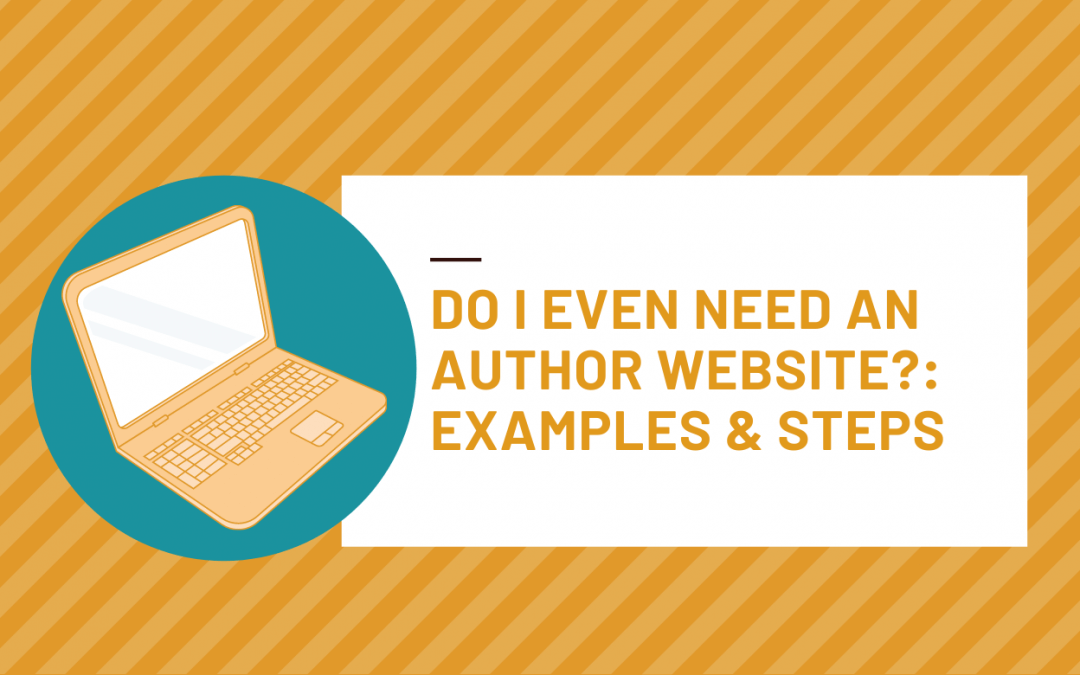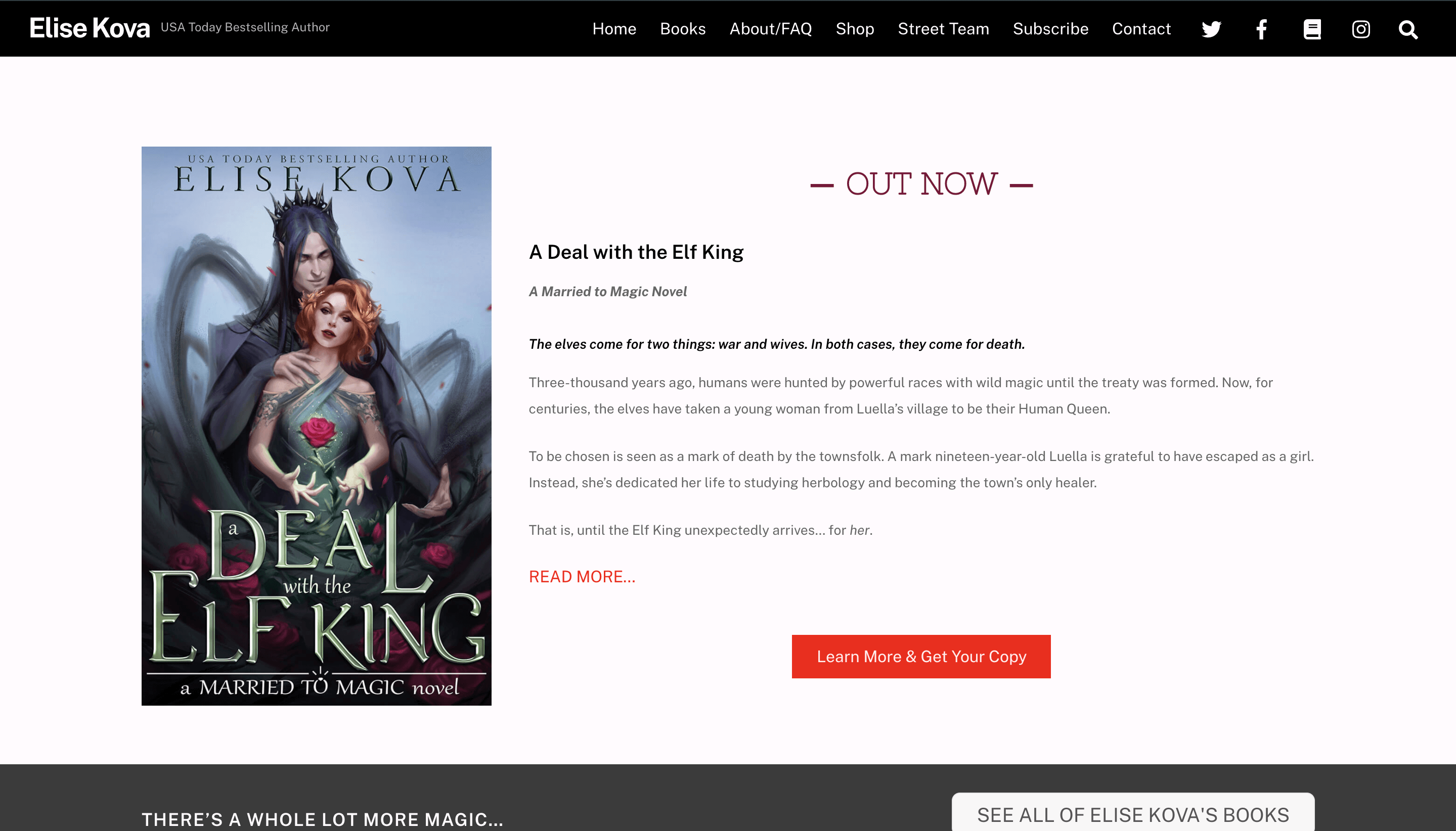As a first-time author, it is exhilarating to witness the fruits of your hard work—a completed manuscript. How exciting the prospects are of sharing your story with the world! You envision a steady stream of monthly royalties stuffing your bank account as your book sails up the ranks on Amazon.
While all this optimism is inspiring, it may do the newly minted author well to take a minute to ponder exactly how their book will find it’s way into someone’s search results in the first place. After all, a book sale starts and ends with savvy promotional efforts.
As a self-published author, the important step of promoting your book is 100% on you.
Among the assorted marketing maneuvers an author can make to get their book seen, creating an author website is among the most effective.
An author website provides a framework in which to showcase your book while also housing a blog, a place to post some book reviews, links to any radio or podcast guest spots you’ve done, and a brilliant way to capture a substantial email list to keep in touch with your fan base.
Learn how creating a book author website makes great sense.
I’m a New Author. Do I Need a Book Author Website?
Whether you publish your book through a traditional publisher or go the self-publishing route, you will most definitely need to build an author website.
Traditional publishers gravitate toward authors who have an established online presence, as it makes their job of promoting the book that much more efficient.
As a self-published author, there is really no way around the necessity of having an author website. It is the anchor for all other promotional efforts.
The purpose of creating an author website is twofold: to elevate your credibility as a professional writer and to increase your online footprint. Both of these functions are intrinsic to the ultimate success of your book.
For example, you pen a blog and publish it on your website. You then push the blog out on several social media platforms, selecting one or two to promote with paid ads. This drives traffic to your website, where your book is prominently featured, as well as sending readers directly to an online bookseller through the link in your ad.
Considering how easy it is to create an author website, taking this step toward further ensuring your success as an author is a no brainer.
How to Make an Author Website
Building an author website does not have to be a huge undertaking. Even someone with minimal technical skills can create a stunning website using one of the popular online website builders. These offer a wide variety of templates to choose from, and all are totally customizable. To build an author website, follow these steps.
Buy a domain name
Hopefully, your full name is available for purchase, but if you have a common name you may have to be a bit creative in choosing a domain name. Some website builders offer free domain names as part of a package.
Select a website builder
Some of the widely used site builders include GoDaddy, Gator, Wix, Weebly, and Squarespace. All website builders charge a fee for hosting your domain. Fees range from $5-$20/month, depending on the package you select.
If you are not a tech wiz, then just keep your website simple and streamlined. Create an attractive home page and add a minimum of three tabs: Blog, About Me, and Contact. You can always add more tabs later.
Feature your book
Place a nice sized book cover image on the home page, along with a link to the Amazon listing. Once you begin writing blogs on relevant topics to the book, you can feature a link to the monthly blog on the home page.
Install a subscription tab
This is an invite to site visitors to subscribe to the blog or the website. They will then receive email notifications when you post new content. This is an excellent way to build an email list for future promotional efforts.
Add other media
If you recently had a book signing and have some video of the event, or did an interview on a podcast, you can post these links to your home page. All of this builds up credibility as an indie author.
Pro tip: Integrate your social media feed into your website to connect website visitors to your social media presence. Likewise, prominently advertise your website on your Facebook author page and Instagram page.
7 Great Examples from Self-Published Authors
It is always helpful to see real-life examples of what a successful author’s website looks like. Consider these seven author website examples.
Elise Kova
Notice how the author features her current book while also previewing her upcoming novel for March 2021. She includes a “Shop” tab where she offers signed copies of her books, as well as limited-edition merchandise.
Website: elisekova.com
Jim Wilson
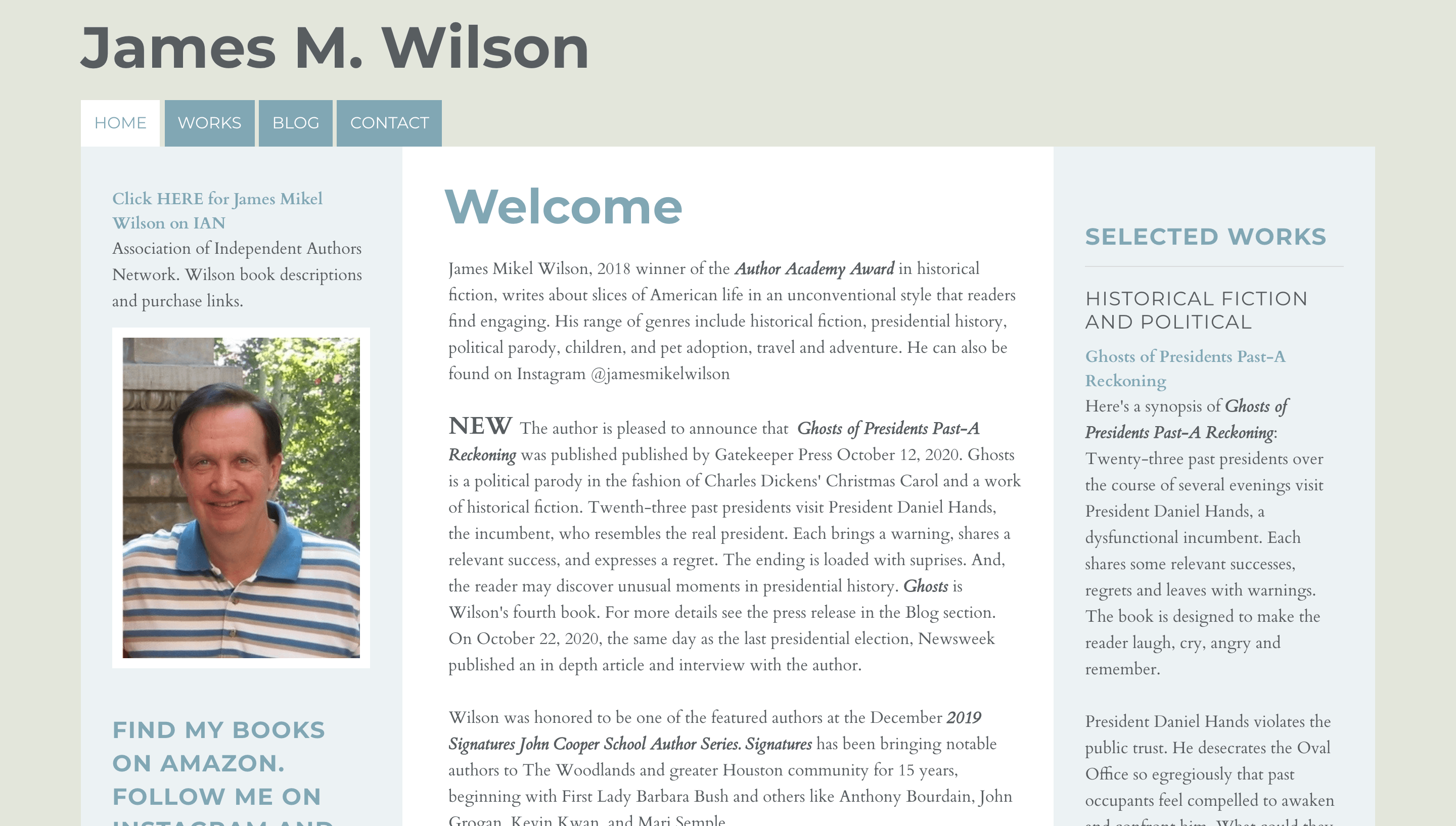
The author makes good use of his home page, including a biography, professional affiliations, and short summaries of several books he has authored. You know, at first glance, that he is an accomplished person.
Website: jamesmikelwilson.com
Daphne Uviller
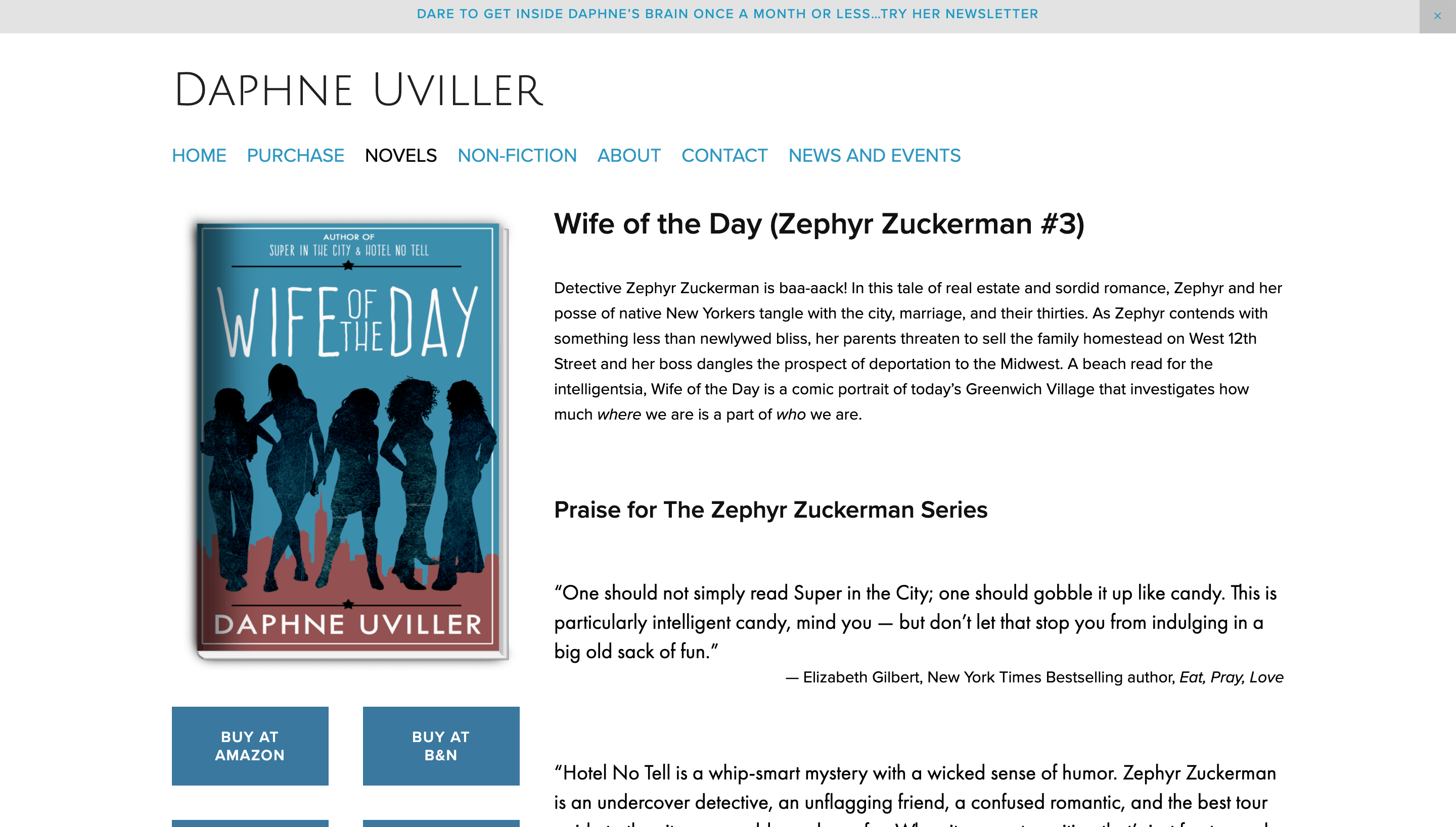
Ms. Uviller utilizes a crisp, simple aesthetic to showcase the latest installment of her The Zephyr Zuckerman Series. She also includes reviews on the homepage and simple button-style shopping options.
Website: daphneuviller.com
Mark Holmes
 Holmes has parlayed his consultancy and writing skills into a sought after speaker for large companies. His website highlights all facets of his enterprising efforts, including a tab for his books.
Holmes has parlayed his consultancy and writing skills into a sought after speaker for large companies. His website highlights all facets of his enterprising efforts, including a tab for his books.
Website: markholmesgroup.com
L.J. Ross
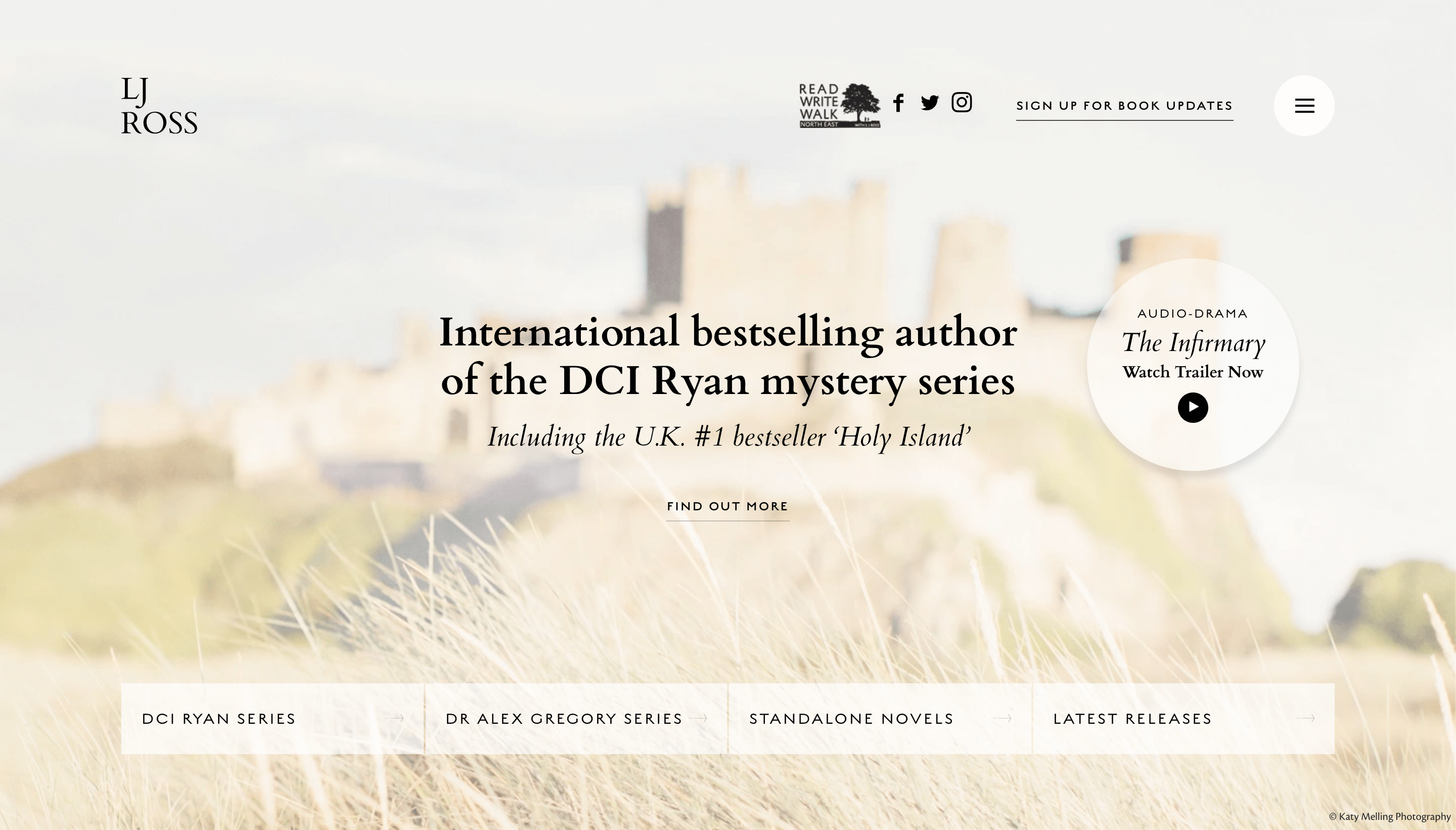
This bestselling indie author of the DCI Ryan mystery series has created a stunning website. Its clean design has just four tabs across the bottom of the home page but also has a drop-down menu for the handy catalog and the ‘About’ page.
Website: ljrossauthor.com
Hugh Howey
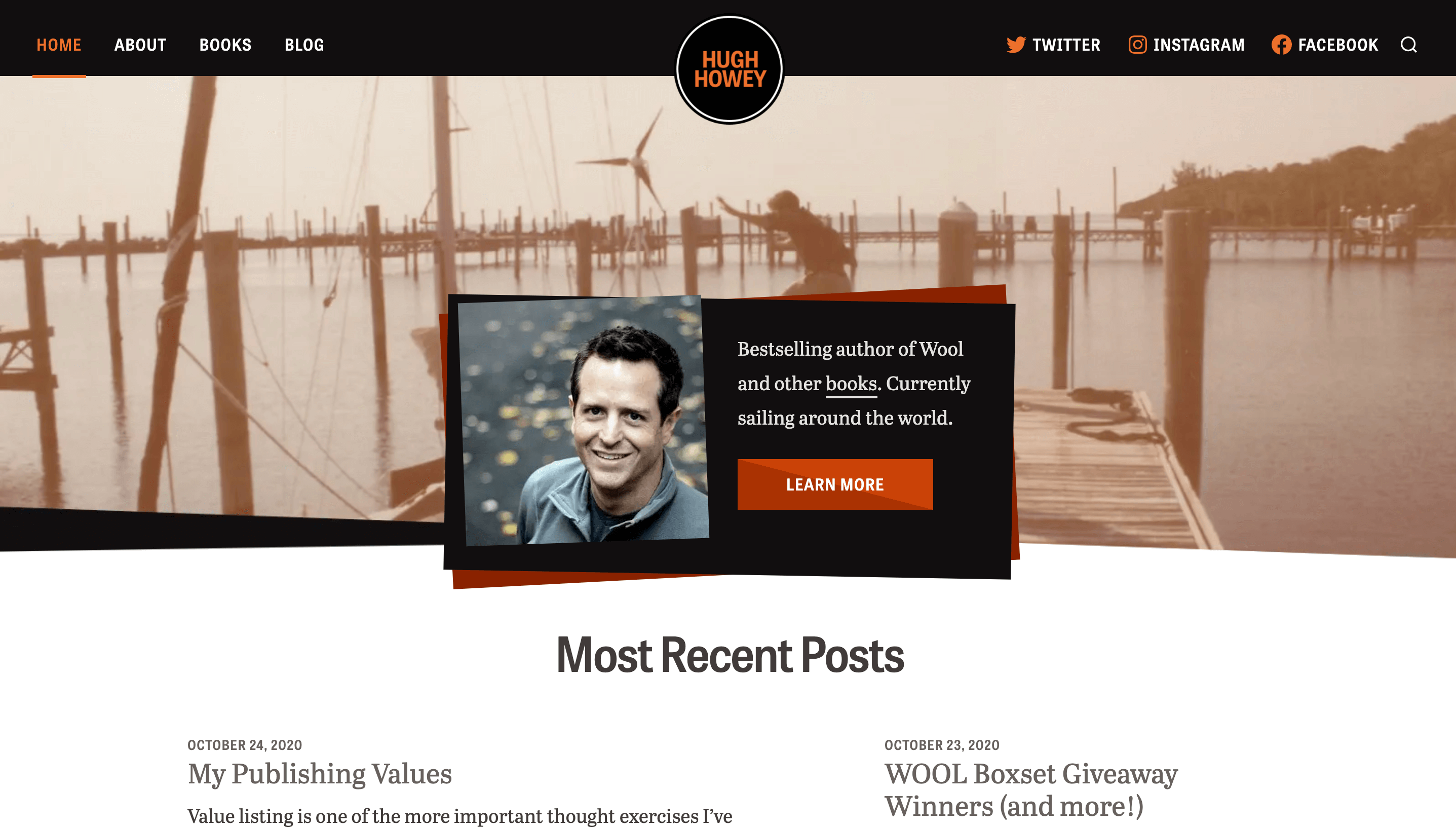
This self-published author has mixed a lively blog with his book titles on the home page. Notice the prominence of the social media links at the top right, and as you scroll down, you will enjoy bold, bright graphics that keep you engaged and wanting to know more.
Website: hughhowey.com
Gillian Perkins

This savvy entrepreneur uses her books as tools for selling her coaching services. Her website has a clean, modern look and features photos of the author/entrepreneur prominently on each page. She also has a blog and a subscriber tab.
Website: https://gillianperkins.com/
What’s great about building your author website is that you can tailor it to reflect your personality and genre. There is no right or wrong way to approach creating your website.
Learn More About How to Make Your Self-Published Book a Success
Building an appealing author website is only one step in the process of creating a vibrant online presence. Team up with the experts at Gatekeeper Press to learn much more about packaging yourself and your book for achieving online success. Contact Gatekeeper Press today!

